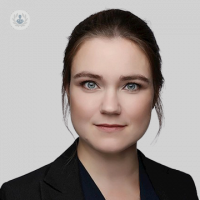All about myopia in children
Written in association with:Myopia, commonly referred to as nearsightedness, is a condition where distant objects appear blurry while close objects remain clear. This condition often begins in childhood and can progressively worsen over time. With increasing prevalence worldwide, especially in urban areas, understanding myopia progression and its prevention is crucial for maintaining long-term eye health in children.

Causes
The primary cause of myopia is the elongation of the eyeball, which affects the way light focuses on the retina. Genetics play a significant role; children with myopic parents are more likely to develop the condition.
However, environmental factors, such as prolonged near work-like reading or screen time and insufficient exposure to natural daylight, also contribute significantly to its onset and progression. Left unmanaged, severe myopia can increase the risk of complications later in life, including retinal detachment, glaucoma, and macular degeneration.
Prevention
Preventing or slowing myopia progression involves a combination of strategies targeting lifestyle changes and medical interventions. Encouraging children to spend more time outdoors is one of the simplest yet most effective methods.
Studies suggest that two hours of outdoor activity daily can significantly reduce the risk of myopia development. Limiting screen time and promoting regular breaks during close-up tasks, using the 20-20-20 rule (every 20 minutes, look at something 20 feet away for 20 seconds), can also help alleviate strain on the eyes.
Treatment
On the medical front, options like orthokeratology (Ortho-K) lenses, atropine eye drops, and specially designed multifocal or bifocal glasses have shown promise in slowing the progression of myopia. Ortho-K lenses, worn overnight, temporarily reshape the cornea, improving vision and potentially reducing myopia progression. Low-dose atropine drops, when administered under an ophthalmologist’s guidance, have also been effective in halting further elongation of the eyeball.
Routine eye check-ups are essential to detect myopia early and implement appropriate interventions. With a proactive approach combining lifestyle adjustments and medical treatments, parents can help mitigate the impact of myopia, ensuring their children maintain clear and healthy vision into adulthood.


